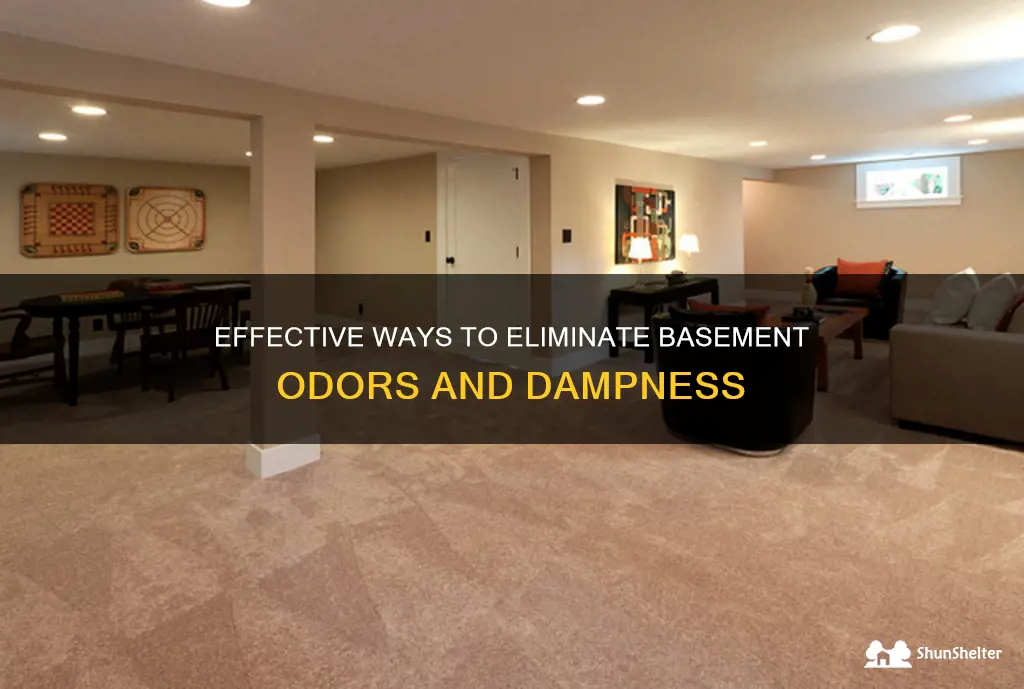
Are you tired of dealing with a damp and musty basement? Do you cringe at the sight of water seeping through the walls or the persistent odor that lingers in the air? Well, fret no more! We're here to help you discover the secrets to getting rid of these basement woes and transforming your underground space into a dry, comfortable, and inviting area. From simple tips to professional solutions, we've got you covered on your journey to a basement free from moisture and all its accompanying nuisances. So, grab your tools and let's embark on this adventure that will turn your basement into a haven rather than a headache!
| Characteristics | Values |
|---|---|
| Moisture | Identify and fix any sources of moisture such as leaks or condensation |
| Ventilation | Improve air circulation and install dehumidifiers if needed |
| Insulation | Insulate walls and floors to prevent cold and dampness |
| Waterproofing | Apply a waterproof coating on walls and floors |
| Drainage | Ensure proper drainage around the basement to prevent water buildup |
| Pest control | Seal any entry points and use pest control methods to eliminate pests |
| Organization | Declutter and properly organize items to prevent clutter and potential pest habitats |
| Cleaning | Regularly clean and sanitize the basement to prevent mold and mildew growth |
| Structural integrity | Address any structural issues such as cracks or foundation problems |
| Lighting | Install adequate lighting to prevent a dark and damp environment |
| Safety precautions | Install smoke detectors, carbon monoxide detectors, and fire extinguishers |
| Regular maintenance | Schedule regular inspections and maintenance to address any issues promptly |
What You'll Learn

Identify the Source of the Odor
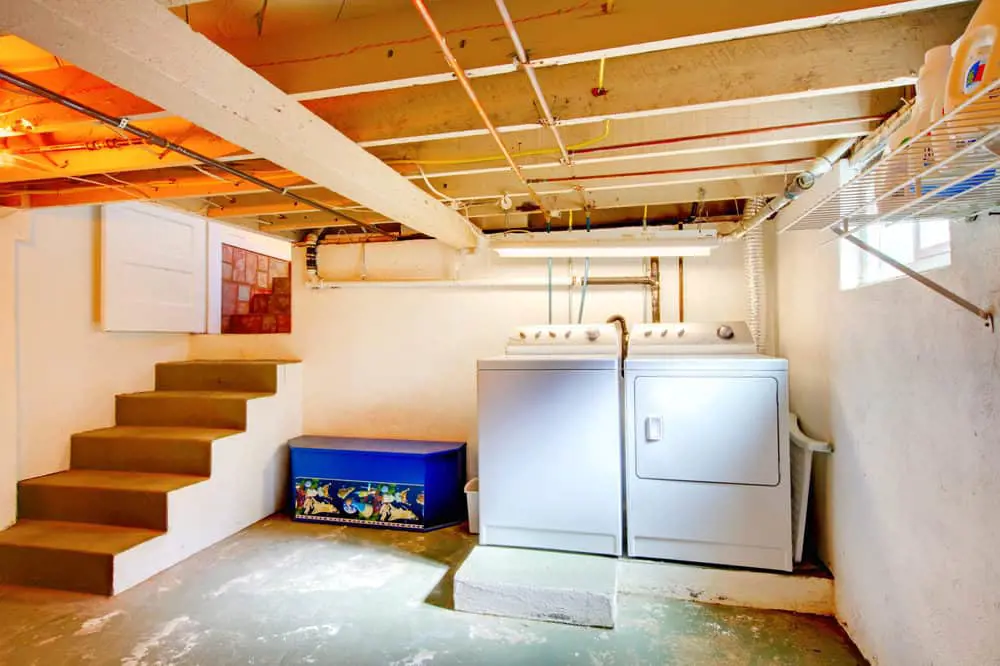
Does your basement have an unpleasant odor that you just can't seem to get rid of? Identifying the source of the odor is the first step in eliminating it. Here are some tips to help you identify and tackle the source of the odor in your basement.
- Mold and Mildew: One common cause of basement odors is mold and mildew. Basements are often damp and poorly ventilated, creating the perfect environment for mold to grow. Look for visible signs of mold or mildew on walls, ceilings, and floors. Additionally, check for any water leaks or moisture buildup that could be contributing to the problem.
- Sewer or Septic Issues: If your basement smells like sewage, it could indicate a problem with your sewer or septic system. Inspect the drains and toilets in your basement for any blockages or leaks. If you notice any standing water or wastewater backup, it's essential to fix the issue as soon as possible to prevent further damage and eliminate the odor.
- Dead Animals: Unpleasant odors in basements can sometimes be caused by dead animals such as mice, rats, or squirrels. Look for any visible signs of an infestation, such as droppings or chewed wires. If you suspect there is a dead animal in your basement, locate and remove it safely, wearing gloves and a mask to prevent direct contact.
- Stagnant Water or Moisture: Standing water or excess moisture can lead to a musty smell in basements. Check for any leaks in pipes, plumbing fixtures, or appliances such as washing machines. Ensure that all areas prone to moisture, such as laundry rooms and bathrooms, have proper ventilation. If you have a sump pump, make sure it is working correctly to prevent water buildup.
- Chemicals and Cleaning Products: Sometimes the source of the basement odor can be as simple as chemicals or cleaning products stored in the area. Ensure that all containers are tightly sealed and properly labeled to prevent leaks or spills. Consider moving any strong-smelling products to a better-ventilated area or replacing them with less odorous alternatives.
- Improper Air Circulation: Inadequate air circulation can cause stale or stagnant air, resulting in unpleasant odors. Check if your basement has proper ventilation, such as windows or vents. If not, consider installing a dehumidifier or using fans to improve air circulation. Regularly open windows or use fans to allow fresh air to flow into the basement.
To identify the specific source of the odor, it may be helpful to conduct a thorough inspection of your basement. With the help of a flashlight, search for any hidden leaks, signs of mold or mildew, or dead animals. If the odor persists even after addressing the identified issues, it may be worth seeking professional help to determine the cause and find a solution.
Remember, the best way to prevent basement odors is to maintain good ventilation, control moisture levels, and address any issues promptly. By identifying and eliminating the source of the odor, you can enjoy a fresh and odor-free basement once again.
How Worms Make their Way into Basement Doors
You may want to see also

Clean and Remove Pet Stains
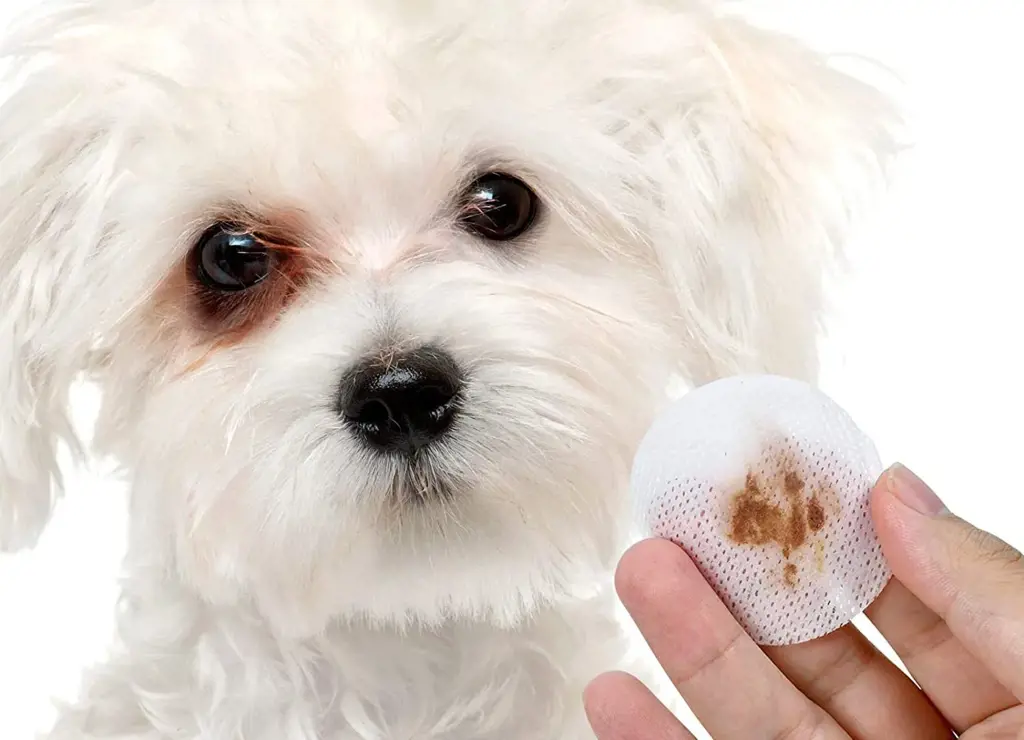
Having a pet in your home can bring lots of joy and happiness, but it can also lead to some unwanted messes. One common issue that pet owners often encounter is pet stains on their basement floor. These stains can be unsightly and difficult to remove, but with the right tools and techniques, you can clean and remove pet stains effectively. In this blog post, we will provide you with detailed instructions on how to clean and remove pet stains from your basement floor.
Gather the necessary supplies:
Before you start cleaning the pet stains, make sure you have all the necessary supplies ready. You will need the following items:
- Rubber gloves
- Paper towels or absorbent cloths
- A disinfectant cleaner or an enzymatic pet stain remover
- A scrub brush or a sponge with a scrubbing pad
- A bucket of warm water
- A wet vac or a mop
Wear protective gloves:
Put on a pair of rubber gloves before you start cleaning the pet stains. This will protect your hands from any potential bacteria or germs present in the stain.
Blot the stain:
If the pet stain is still wet, take a paper towel or an absorbent cloth and blot the stain gently. Avoid rubbing or scrubbing the stain at this stage, as it can spread the stain and make it harder to remove. Continue blotting until you have absorbed as much liquid as possible.
Treat the stain:
Once you have blotted the stain and absorbed most of the liquid, use a disinfectant cleaner or an enzymatic pet stain remover to treat the area. Follow the instructions on the product label to ensure its effective use. Apply the cleaner directly onto the stain, making sure to cover the entire area.
Scrub the stain:
After applying the cleaner, use a scrub brush or a sponge with a scrubbing pad to scrub the stain gently. Scrub in a circular motion to loosen the stain and dirt from the surface. Avoid using excessive force as it can damage the floor.
Rinse the area:
Fill a bucket with warm water and use it to rinse the treated area. Dip a clean cloth or sponge in the water and wring out the excess moisture. Gently rub the stained area with the damp cloth or sponge to remove the cleaner and any remaining stain.
Dry the floor:
Once you have rinsed the area, use a wet vac or a mop to remove the excess moisture from the floor. Alternatively, you can also use clean, dry towels to absorb the water. Make sure to dry the floor thoroughly to prevent any potential mold or mildew growth.
Check for remaining stains:
After the floor has dried, inspect the area closely for any remaining stains. If you notice any traces of the stain, repeat the cleaning process using the disinfectant cleaner or pet stain remover.
With these detailed instructions, you can effectively clean and remove pet stains from your basement floor. Remember to act quickly to tackle fresh stains and always use proper protective gear when dealing with pet messes. By following these steps, you can keep your basement clean and odor-free, ensuring a hygienic environment for both you and your pets.
Exploring the Ways Moles Access Basements
You may want to see also

Eliminate Moisture and Mold
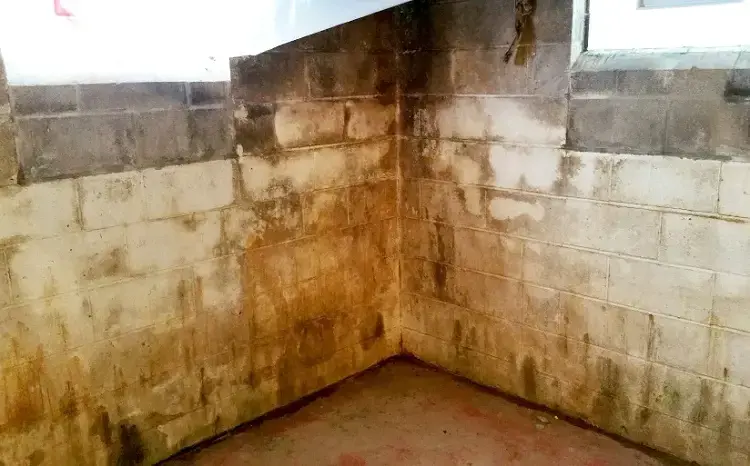
Having a musty basement is not only unpleasant but also a sign of excess moisture and potential mold growth. Moisture in a basement can arise from various sources such as groundwater seepage, condensation, or plumbing leaks. However, eliminating moisture and mold from your basement is not an impossible task. By following these steps, you can reclaim your basement and create a clean, dry, and healthy environment.
- Identify the water source: Before addressing the moisture issue, it is crucial to determine the source of water intrusion. Check for signs of leaks, such as wet spots, stains, or watermarks on the walls, ceiling, or floor. Inspect the foundation for any cracks or gaps where water might be seeping in. Identifying the water source is essential for preventing further moisture problems.
- Repair cracks and seal gaps: Once you have identified the source of water, it's time to fix it. Repair any cracks or gaps in the foundation using epoxy or hydraulic cement. Make sure to apply the products according to the manufacturer's instructions. Additionally, seal any gaps around windows, pipes, or utility lines with caulk or foam insulation to prevent further water intrusion.
- Improve drainage: Proper drainage is essential for keeping moisture away from your basement. Check the grading around your home and ensure that the soil slopes away from the foundation. This will help to divert water away instead of accumulating around the basement walls. Consider installing gutter extensions or downspout diverters to direct rainwater away from the foundation.
- Install a sump pump: If you have an ongoing problem with groundwater seepage, installing a sump pump can be a game-changer. A sump pump collects water from the basement and pumps it away from the foundation. It is typically installed in a pit dug into the basement floor. Consult a professional for proper sump pump installation and maintenance.
- Improve ventilation: Proper ventilation is crucial for reducing moisture levels in your basement. Ensure that your basement is adequately ventilated by installing windows that can be opened or using exhaust fans. You can also use dehumidifiers to extract excess moisture from the air. Consider installing a ventilation system designed specifically for basements for efficient moisture control.
- Insulate pipes and walls: Condensation can contribute to excess moisture in your basement. To combat this, ensure that all cold water pipes are properly insulated to prevent condensation. Insulating the walls with foam insulation panels can also help prevent condensation and moisture issues.
- Clean and remove mold: If mold has already developed in your basement, it is crucial to take immediate action. Use a mixture of water and detergent to scrub the affected areas. For stubborn mold growth, consider using a bleach and water solution (1 part bleach to 10 parts water) to kill the mold. Make sure to wear protective gear such as gloves and a mask when dealing with mold.
- Monitor moisture levels: To prevent future moisture problems, regularly monitor the moisture levels in your basement. You can use a moisture meter to check the humidity levels. Ideally, the humidity in your basement should be below 50%. If it exceeds this level, take necessary steps to reduce the moisture.
Remember, getting rid of moisture and mold in your basement is not a one-time fix. Regular maintenance and vigilance are necessary to keep your basement dry and mold-free. By following these steps and addressing any moisture issues promptly, you can eliminate moisture and mold from your basement, creating a healthier and more comfortable living environment.
Effective Methods for Stripping Paint from Basement Walls
You may want to see also

Use Natural Odor Absorbing Methods
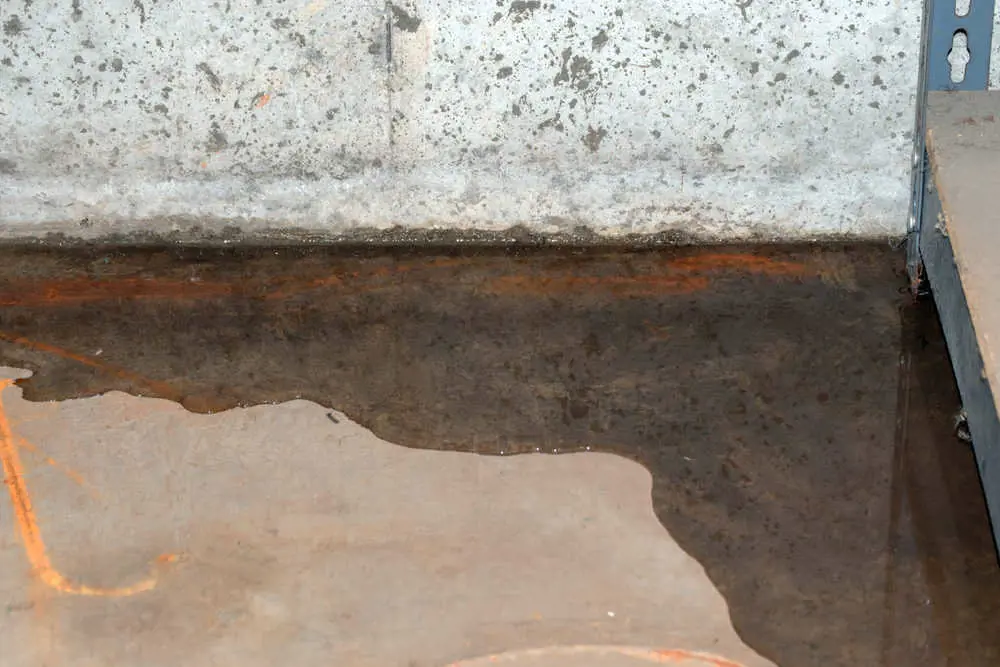
Are you tired of dealing with that musty smell coming from your basement? You're not alone. Basements are notorious for harboring unpleasant odors due to factors such as poor ventilation, moisture, and mold growth. However, there are natural odor-absorbing methods that can help you get rid of those unpleasant smells and create a fresh and inviting space. In this article, we will explore some effective ways to eliminate basement odors naturally.
- Baking soda: Baking soda is a tried and true odor absorber. Sprinkle a generous amount of baking soda on the floor and any other areas where the odor is the strongest. Leave it overnight and then vacuum it up the next day. Baking soda will help absorb and neutralize the unpleasant smells in your basement.
- Charcoal: Charcoal has excellent odor-absorbing properties and is often used in air purifiers. Place a few pieces of activated charcoal in a bowl or shallow container and leave it in your basement. The charcoal will naturally absorb the odors over time. Make sure to replace the charcoal regularly to maintain its effectiveness.
- White vinegar: Vinegar is known for its deodorizing properties. Fill a spray bottle with white vinegar and spray it in the air and surfaces of your basement. Let it sit for a few hours or overnight before ventilating the area. The vinegar will help eliminate any lingering odors, leaving your basement smelling fresh.
- Essential oils: Essential oils not only provide a pleasant fragrance but also have natural deodorizing properties. Add a few drops of your favorite essential oil, such as lavender or citrus, to a spray bottle filled with water. Shake well and spray the mixture around your basement. You can also mix the essential oils with a carrier oil, such as almond or jojoba oil, and place a few drops on cotton balls to distribute throughout the basement.
- Coffee grounds: Coffee grounds are known for neutralizing odors. Fill a bowl with used coffee grounds and place it in your basement. The coffee grounds will absorb and mask any unpleasant smells, leaving a subtle coffee aroma in the air. Remember to replace the coffee grounds regularly to keep them fresh and effective.
- Fresh air and ventilation: Lack of airflow can contribute to musty odors in basements. Open windows and doors to let fresh air circulate through your basement. Use fans or dehumidifiers to improve air circulation and reduce moisture levels. Proper ventilation is crucial for preventing and eliminating basement odors.
- Dehumidifiers: High humidity levels can lead to mold growth and unpleasant odors. Invest in a good-quality dehumidifier to remove excess moisture from the air. This will help prevent the growth of mold and mildew and significantly reduce basement odors. Empty and clean the dehumidifier regularly for optimal performance.
Remember, the key to eliminating basement odors is to address the underlying causes such as moisture and mold. Fix any leaks or sources of water intrusion, ensure proper drainage, and maintain a clean and dry basement. By using these natural odor-absorbing methods in combination with preventive measures, you can enjoy a fresh and inviting basement space free from unwanted smells.
Why Crack Injection of Basement Wall Isn't Offered by Contractors
You may want to see also
Frequently asked questions
To get rid of a musty smell in your basement, you can start by identifying and fixing any sources of moisture, such as leaks or inadequate ventilation. Next, you can clean and disinfect the basement surfaces and objects using a mixture of vinegar and water or a specialized cleaner. Additionally, using a dehumidifier or a fan can help in reducing humidity levels and eliminating the musty smell.
To eliminate mold in your basement, it is essential first to identify and fix any sources of moisture, such as water leaks or condensation. Next, you can remove any visible mold using a mixture of water and detergent or a mold-specific cleaner. It is crucial to wear protective gear, including gloves and a mask, to avoid inhaling mold spores. Additionally, improving ventilation, using a dehumidifier, and ensuring proper insulation can help prevent future mold growth.
To prevent pests from infesting your basement, it is crucial to maintain cleanliness and remove any potential food sources, such as crumbs or garbage. Blocking entry points, such as gaps in windows or doors, can help in keeping pests out. Additionally, ensuring proper ventilation, fixing leaks or excess moisture issues, and sealing cracks or crevices can prevent pests like rats, mice, and insects from finding a suitable environment in your basement. Regular inspections and professional pest control treatments can also be effective in preventing infestations.







